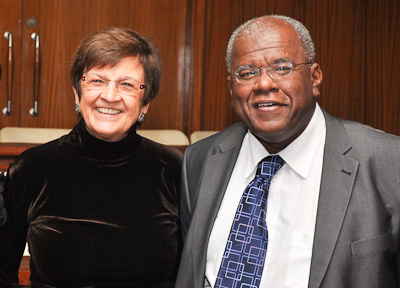Latest News Archive
Please select Category, Year, and then Month to display items
09 December 2020
|
Story Carli Kleynhans
|
Photo Supplied
 Carli Kleynhans.
Carli Kleynhans.
With the most gruelling year recorded in our entire lives, gradually coming to an end we remain hopeful and thankful that we have made it through. From the unexpected shock of going into lockdown, to the worry of having to use a blended approach to succeed in your academics and now finally settling into a new normal, we at the advising office bestow upon you the title of Kovsie champion…because that's exactly what you are!
One of our many champions, Carli Kleynhans, a 3rd (final) year student enrolled for BA Psychology and English shares how she survived…no, actually how she has thrived in 2020.
• What was your biggest concern about your academics when you found out the country was going into lockdown?
My biggest concern about my academics as a final year student was whether the online learning and tests would provide the same in depth learning experiences that are necessary to build upon for future studies.
• What are some of the challenges you've experienced along the way?
Staying focused and trying not to procrastinate was a big challenge I had to conquer, especially trying to not be distracted by my family and my phone. How I survived and was able to thrive in 2020!
• What are some of the strategies you've used to ensure your academics don’t suffer?
Time management was one of the most important strategies that I applied. For most of my classes, I was able to focus each week on a different module, by working and studying in advance I was able to keep up with my workload and still have the weekends to focus on myself, therefore creating designated time to work, study and also time to relax and read.
• What support have you received from the institution that's helped you thus far?
Most of my lecturers have provided needed support regarding our academics. The institution helped provide clarity with everything that was going on.
• What do you think the UFS could have done differently to support student success?
I think the UFS could have provided more resources for the final year students, especially considering we have to apply for further studies; online it was difficult to discern exactly what was necessary for the applications, whereas in class I feel more information would have been provided.
• What has kept you motivated?
Knowing it is my final year has helped to motivate me, as I have to use these grades to apply for further studies. I recently received recognition from Golden Key and this helped to further inspire me to work even harder at my academics.
• What advice do you have for your fellow Kovsies who are finding it difficult to keep going?
Remember to make time for yourself, to look after yourself and your mental health, especially in these difficult times. Work in advance and keep to your personal academic calendar.
UFS Research Report launched
2010-08-25
 |
Seen here, are Prof. Nerad and Prof. Jansen
Photo: Stephen Collett |
The Directorate Research Development launched the University of the Free State’s (UFS) 2009 Research Report in August 2010. Prof. Frans Swanepoel, Director: Research Development, highlighted progress, future research development direction and several exceptional institutional research achievements, with special focus on the women researchers who are changing the face of research excellence at the UFS. Prof. Jonathan Jansen, Vice-Chancellor and Rector of the UFS, emphasised outstanding research performance as a fundamental element to the vision of the UFS and introduced Prof. Maresi Nerad, founding Director of the Centre for Innovation and Research in Graduate Education (CIRGE) and Associate Professor for Higher Education in the Educational Leadership and Policy Studies Programme at the College of Education at the University of Washington, Seattle, USA, as keynote speaker at the event. Prof. Nerad argued for a “global-village approach” to doctoral education, calling for a coordinated effort at many levels of higher education and beyond in supporting and developing our young researchers.